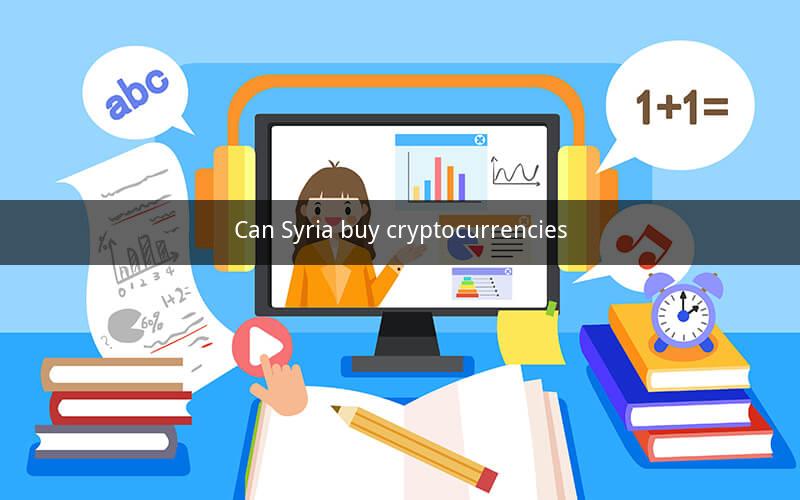
Table of Contents
1. Introduction to Cryptocurrencies
2. The Current Economic Situation in Syria
3. The Legal Framework for Cryptocurrency in Syria
4. The Potential Benefits of Cryptocurrency for Syria
5. The Challenges of Adopting Cryptocurrency in Syria
6. Syria's Potential Cryptocurrency Market
7. The Role of Government in Regulating Cryptocurrency
8. The Role of Financial Institutions in Facilitating Cryptocurrency Transactions
9. The Potential Impact on Syria's Economy
10. Conclusion
1. Introduction to Cryptocurrencies
Cryptocurrencies are digital or virtual currencies that use cryptography to secure transactions and control the creation of new units. Unlike traditional fiat currencies, cryptocurrencies operate independently of a central authority, such as a government or central bank. Bitcoin, the first and most well-known cryptocurrency, was created in 2009.
2. The Current Economic Situation in Syria
Syria has been experiencing economic turmoil since the start of the civil war in 2011. The country's economy has been severely affected by the conflict, leading to hyperinflation, a collapsing currency, and widespread poverty. The Syrian pound has lost over 95% of its value since the war began, and the country's GDP has decreased significantly.
3. The Legal Framework for Cryptocurrency in Syria
The legal framework for cryptocurrency in Syria is still evolving. In 2018, the Central Bank of Syria issued a statement warning against the use of cryptocurrencies, citing concerns about financial stability and the potential for money laundering. However, there is no specific legislation that explicitly bans the use of cryptocurrencies in the country.
4. The Potential Benefits of Cryptocurrency for Syria
Despite the legal uncertainties, there are several potential benefits of adopting cryptocurrencies for Syria:
Access to Global Markets: Cryptocurrencies can provide Syrians with access to global markets and financial services, which are currently inaccessible due to sanctions and the country's economic isolation.
Financial Inclusion: Cryptocurrencies can help promote financial inclusion by providing a means of conducting transactions and storing wealth for those who are unbanked or underbanked.
Reduced Inflation: Cryptocurrencies are not subject to inflation, which can provide a stable store of value for Syrians.
5. The Challenges of Adopting Cryptocurrency in Syria
Despite the potential benefits, there are several challenges associated with adopting cryptocurrencies in Syria:
Legal Uncertainty: The lack of clear legal regulations can create uncertainty and hinder the growth of the cryptocurrency market.
Technological Barriers: Many Syrians lack the necessary skills and knowledge to use cryptocurrencies effectively.
Security Concerns: Cryptocurrencies are not immune to theft and fraud, which can pose significant risks for users.
6. Syria's Potential Cryptocurrency Market
The potential for a cryptocurrency market in Syria is significant. The country has a young and tech-savvy population, and there is a growing demand for alternative financial services. Additionally, the country's economic situation makes it an attractive market for cryptocurrencies.
7. The Role of Government in Regulating Cryptocurrency
The government of Syria will play a crucial role in regulating the cryptocurrency market. It will need to develop clear regulations that protect consumers and prevent financial crimes while also promoting innovation and economic growth.
8. The Role of Financial Institutions in Facilitating Cryptocurrency Transactions
Financial institutions can play a vital role in facilitating cryptocurrency transactions in Syria. They can provide users with the necessary tools and services to safely and securely conduct transactions.
9. The Potential Impact on Syria's Economy
The adoption of cryptocurrencies could have a significant impact on Syria's economy. It could help stabilize the country's currency, promote financial inclusion, and attract foreign investment.
10. Conclusion
While the adoption of cryptocurrencies in Syria presents both opportunities and challenges, the potential benefits are significant. With the right regulations and support from the government and financial institutions, cryptocurrencies could play a crucial role in Syria's economic recovery.
Questions and Answers
1. What is a cryptocurrency?
- A cryptocurrency is a digital or virtual currency that uses cryptography to secure transactions and control the creation of new units.
2. Why is Syria's economy struggling?
- Syria's economy is struggling due to the civil war, which has led to hyperinflation, a collapsing currency, and widespread poverty.
3. What is the legal framework for cryptocurrency in Syria?
- The legal framework for cryptocurrency in Syria is still evolving, with no specific legislation that explicitly bans or regulates the use of cryptocurrencies.
4. What are the potential benefits of adopting cryptocurrencies for Syria?
- The potential benefits include access to global markets, financial inclusion, and reduced inflation.
5. What are the challenges of adopting cryptocurrencies in Syria?
- The challenges include legal uncertainty, technological barriers, and security concerns.
6. What is the potential for a cryptocurrency market in Syria?
- The potential for a cryptocurrency market in Syria is significant, given the country's young and tech-savvy population and the growing demand for alternative financial services.
7. What role can the government play in regulating cryptocurrency in Syria?
- The government can develop clear regulations that protect consumers and prevent financial crimes while also promoting innovation and economic growth.
8. How can financial institutions facilitate cryptocurrency transactions in Syria?
- Financial institutions can provide users with the necessary tools and services to safely and securely conduct transactions.
9. What is the potential impact of cryptocurrencies on Syria's economy?
- The adoption of cryptocurrencies could help stabilize the country's currency, promote financial inclusion, and attract foreign investment.
10. How can Syria's economy recover from the civil war?
- Syria's economy can recover from the civil war through various measures, including the adoption of cryptocurrencies, attracting foreign investment, and implementing economic reforms.